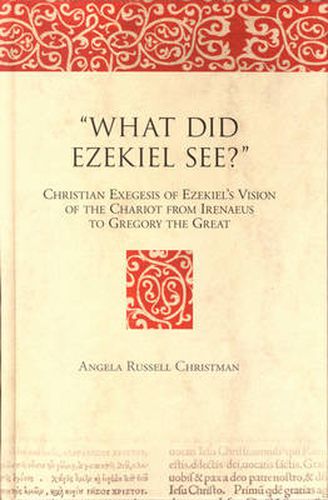Readings Newsletter
Become a Readings Member to make your shopping experience even easier.
Sign in or sign up for free!
You’re not far away from qualifying for FREE standard shipping within Australia
You’ve qualified for FREE standard shipping within Australia
The cart is loading…






What Did Ezekiel See? analyzes the development of early Christian exegesis of Ezekiel 1, the prophet’s vision of the chariot. It demonstrates that as patristic commentators sought to discern this text’s meaning, they attended carefully to its very words, its relation to other biblical books, and the emerging Christian interpretive tradition. In the first six centuries of the common era, three dominant exegetical strands develop concurrently: one which finds in Ezekiel’s vision confirmation of the unity of Old and New Testaments, a second which shows the significance of Ezekiel 1 for discussions of human knowledge of God, and a third which reads the prophet’s vision as illuminating the life of virtue. The book will be useful to students of early Christianity, especially those concerned with the development of Christian exegesis, and to those interested in biblical studies.
$9.00 standard shipping within Australia
FREE standard shipping within Australia for orders over $100.00
Express & International shipping calculated at checkout
What Did Ezekiel See? analyzes the development of early Christian exegesis of Ezekiel 1, the prophet’s vision of the chariot. It demonstrates that as patristic commentators sought to discern this text’s meaning, they attended carefully to its very words, its relation to other biblical books, and the emerging Christian interpretive tradition. In the first six centuries of the common era, three dominant exegetical strands develop concurrently: one which finds in Ezekiel’s vision confirmation of the unity of Old and New Testaments, a second which shows the significance of Ezekiel 1 for discussions of human knowledge of God, and a third which reads the prophet’s vision as illuminating the life of virtue. The book will be useful to students of early Christianity, especially those concerned with the development of Christian exegesis, and to those interested in biblical studies.